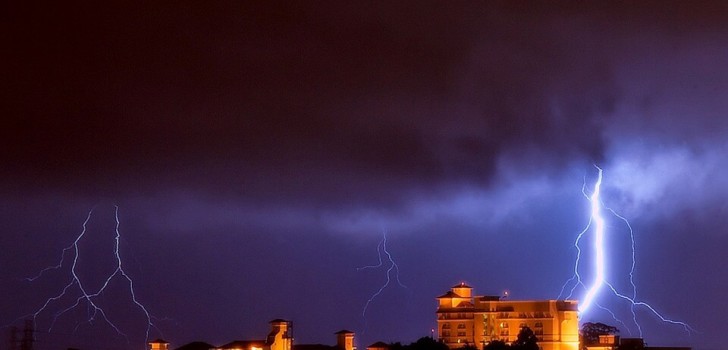The theory that lightning never strikes the same place twice has been disproved, as research presented at the American Geophysical Union Fall Meeting shows that one particular Venezuelan lake is struck by a bolt of lightning nearly 300 days every year. On about 297 out of the 365 days in any given year, Lake Maracaibo receives a lightning strike.
The lake has long been recognized for its particularly high levels of electrical activity. Earlier this year, the lake earned the distinction of being recognized by the Guinness Book of World Records as the location that is most frequently struck by lightning on Earth. Recently, researchers have even gone as far as to pinpoint the exact spot in the lake that attracts the most lightning.
By using satellite data, University of Sao Paulo scientist Rachel Albrecht was able to determine the location of lightning strikes with better accuracy than ever before. In analyzing data that was recorded between the years 1998 and 2013, Albrecht discovered that the point where Lake Maracaibo intersects with the Catatumbo River is the single most lightning-prone spot on the entire planet.
The fact that this spot is extremely prone to lightning can be largely explained by the topographical features of the surrounding area. Being situated in the Andes Mountains while still being close to the Caribbean Sea, Lake Maracaibo experiences both warm ocean breezes and cold mountain area. These differing air temperatures frequently crash to produce major storms. When storms are in full force, up to 28 different lightning strikes can hit the water every single minute.
Of course, Lake Maracaibo isn’t the only place in the world with such geographical features. Other lightning hotspots caused by similar geographic characteristics include the mountainous village of Kifuka in the Democratic Republic of Congo, where there are 232 lightning strikes per kilometer every year. By comparison, Lake Maracaibo is struck by 250 lightning strikes per kilometer every year.
Stay Connected